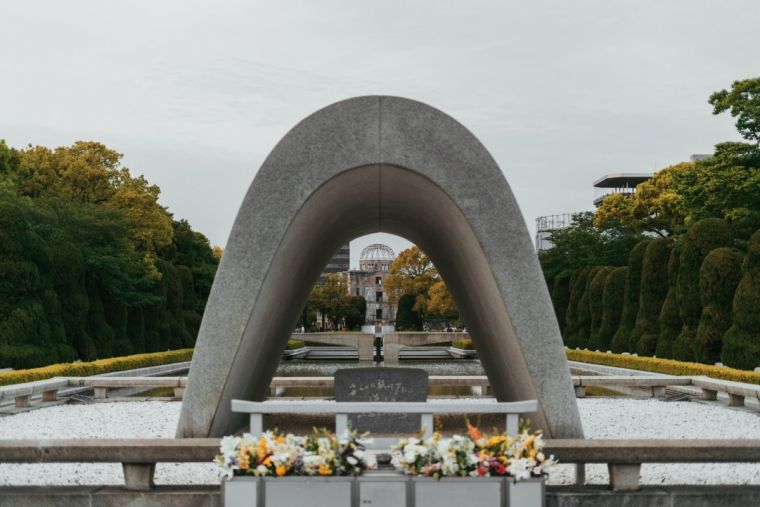The UK should be leading the way on nuclear disarmament, not increasing its stockpile

The past several months have seen politicians and civil society, church leaders and groups (Christian CND courageously among them) combine efforts to raise awareness of the UN Treaty on the Prohibition of Nuclear Weapons (TPNW), and to encourage the UK government to lead the way among nuclear weapons-states in joining this treaty.
Although we knew that the government was unlikely to take our concerns seriously by doing just that, I was led to believe by the government that any move in the opposite direction, such as an increase in our nuclear weapons stockpile, would be just as unlikely. But that is precisely what we are confronted with in the Integrated Review – a commitment to increase the target cap of nuclear warheads by the mid-2020s from 180 to 260, as well as the potential to expand the circumstances in which they may be deployed.
This explicitly breaches the letter and the spirit of the government's reassurance to me, in January, that 'the best way to achieve our collective goal of a world without nuclear weapons is through gradual multilateral disarmament.'
There was reason to believe the government could be trusted. In all the talk over these last five years about what Global Britain will look like, there have been no calls from the armed forces or from politicians for an increase in the number of nuclear warheads. Britain has also steadily reduced its stockpile since the end of the Cold War - at which point it held around 500 warheads. These trends and commitments have been grounded in Britain's signing of the UN Nuclear Non-Proliferation Treaty (NPT), along with 190 countries – a treaty which places obligations on the UK to enter into negotiations to disarm and eliminate nuclear arsenals.
What sort of message are we now sending to the rest of the world? With this announcement we are breaching the trust of the 190 other signatories of the treaty, and the world beyond, just at a time when we should be inspiring global confidence in the integrity and steadfastness of our promises.
It is a lost opportunity. In the context of a new US presidential administration, the extension of the US-Russia New START Treaty (which aims to reduce nuclear stockpiles) and the need for the radical rebuilding of society in the wake of the pandemic, many commentators, including experienced British diplomats, have suggested the possibility of a renaissance in our collective non-proliferation efforts, centred on the forthcoming NPT Review Conference and driven by the Humanitarian Initiative that underpins the TPNW.
This article from 2018 by a Royal United Services Institute (RUSI) Research Analyst explains how the UK could lead the way in making this year's NPT Review Conference a success, for several reasons: our recasting of our global role in the aftermath of Brexit, our experience in the realm of disarmament verification, and our potential to engage states beyond the five permanent members of the UN Security Council (P5) - especially those who might be inclined to expand their arsenals.
The final reason given by the author makes for almost haunting reading in the context of the government's announcement: that 'unlike some others in the P5 club, the UK has a degree of credibility when making statements about being committed to disarmament.' If this was indeed the case, then, after the publication of the Integrated Review, it no longer holds water. The UK was in a special position as a P5 member state that had pursued unilateral reduction in nuclear capabilities – going further than France in this respect.
Now, we have earned a new title by unilaterally doing the exact opposite. How exactly does the government now plan to engage with this year's Review Conference? More widely on the world stage, how will the UK be able to argue that other states should be honouring international obligations when we will have embarked upon a process of dishonouring ours?
For the signatories of the TPNW, however, frustration with the slow progress of non-proliferation efforts took root years ago. The UK's decision to increase its stockpile by over 40% will only stiffen the resolve of those of us who believe that the TPNW is the best and surest way to secure a truly peaceful world where humanitarian concerns come first. But even while supporting the TPNW, I have held out hope for some joined-up thinking between this treaty and the NPT, in the hope of uncovering the common ground between them – even their complementarity. This, I believe, is still a task worth pursuing.
Christians may have different views on the way to achieve the eradication of nuclear weapons, but we are compelled by Jesus Christ to 'recognise on this day the things that make for peace'. (Luke 19.40). As we look on the world through the eyes of Jesus – the eyes that wept for the city – we can unite in deep concern about the expansion of a nuclear arsenal that threatens the eradication of human life on an unimaginable scale, and we can work with renewed vigour to rid God's world of their scourge.
The Rt Rev Dr Christopher Cocksworth, Bishop of Coventry, writing on behalf of the Christian Campaign for Nuclear Disarmament.











